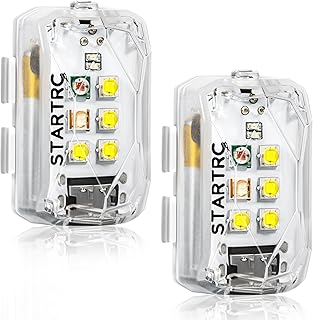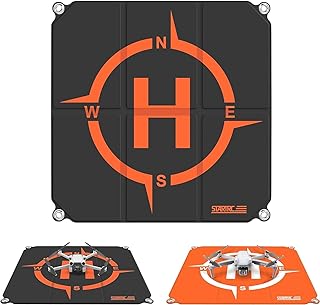STARTRC Drone Safety Tips: Flying Responsibly
Flying a drone can be a thrilling experience, but it's crucial to prioritize safety for yourself, others, and your drone. Here are some safety tips to ensure a responsible and enjoyable flying experience:
Before you fly:
* Know the laws: Familiarize yourself with local, state, and federal regulations regarding drone operation. This includes airspace restrictions, registration requirements, and operating limitations. The FAA (Federal Aviation Administration) website is a valuable resource for this information.
* Check the weather: Avoid flying in strong winds, heavy rain, or other unfavorable weather conditions.
* Choose a safe location: Fly in open areas with clear airspace, away from populated areas, airports, and restricted zones. Always be mindful of your surroundings and avoid flying near power lines or other hazards.
* Inspect your drone: Ensure your drone is in good working order before each flight. Check the battery, propellers, and other components for damage or wear.
* Familiarize yourself with your drone: Learn how to operate your drone safely and effectively. Practice in a safe environment before flying in more complex situations.
During flight:
* Maintain visual line of sight: Always keep your drone within your line of sight. This allows you to control the drone and avoid potential collisions.
* Fly responsibly: Respect other airspace users, including aircraft, helicopters, and other drones. Fly at appropriate altitudes and avoid causing disturbance to others.
* Be aware of your surroundings: Pay attention to your surroundings and avoid flying over private property, crowded areas, or areas where people are gathered.
* Avoid flying near people: Do not fly your drone near people unless they have given their consent.
* Do not fly over or near sensitive areas: This includes areas such as prisons, power plants, and military installations.
* Avoid flying at night: Night flying can be dangerous due to reduced visibility.
* Be respectful of wildlife: Do not fly your drone near or over animals, as this can cause disturbance or stress.
After flight:
* Store your drone safely: Keep your drone in a safe and secure location when not in use.
* Review your footage: Analyze your footage for potential safety issues or areas for improvement in your flying skills.
* Stay informed: Continue to stay informed about drone regulations and best practices by staying up-to-date with industry news and resources.
Remember, responsibility is key to safe and enjoyable drone flying. By following these safety tips, you can help ensure a positive experience for yourself and others.


